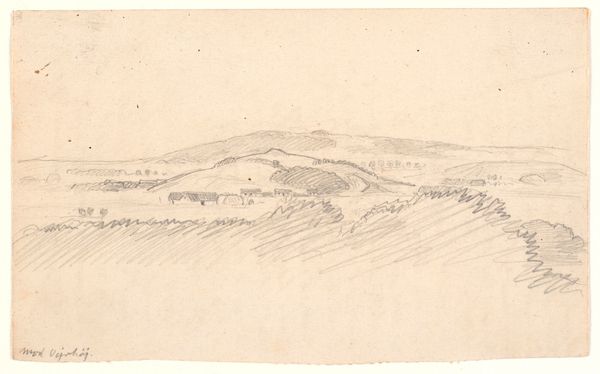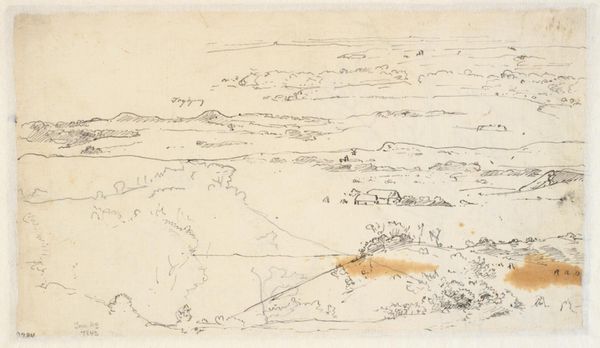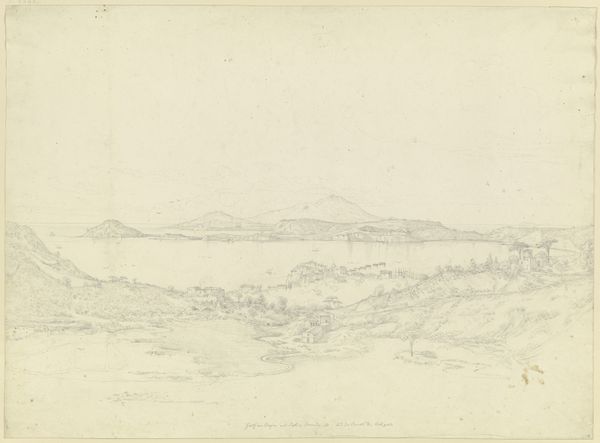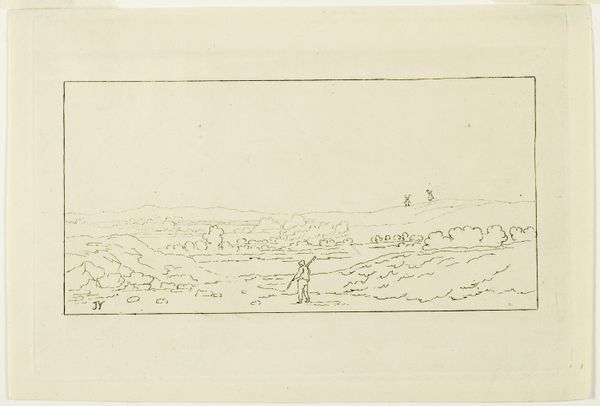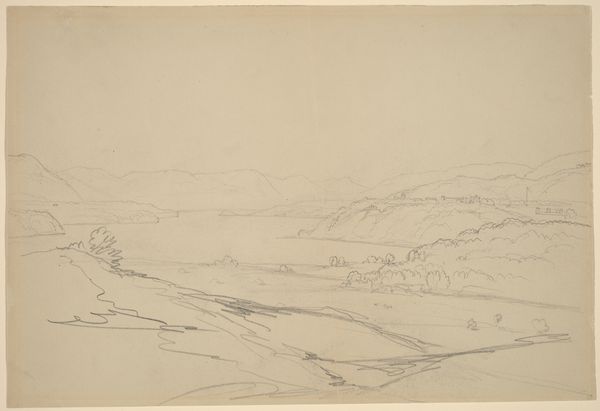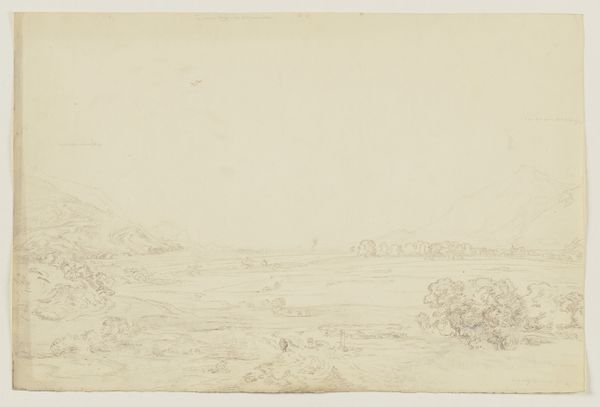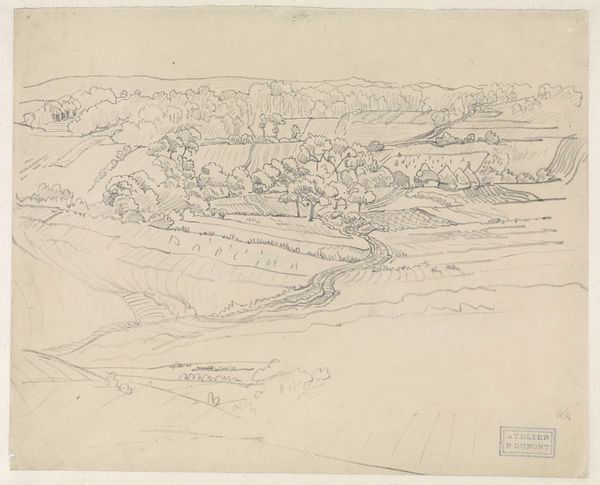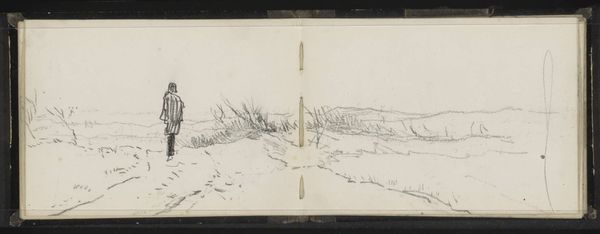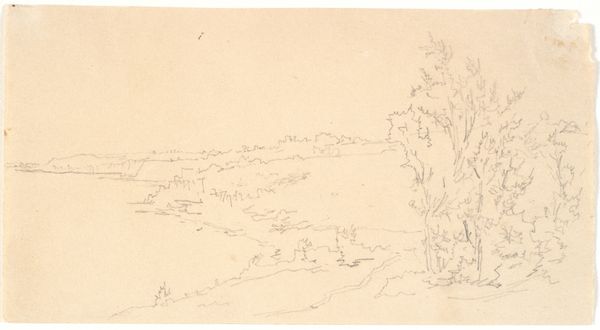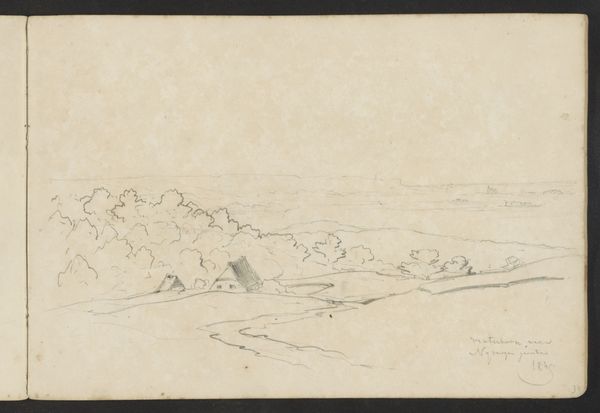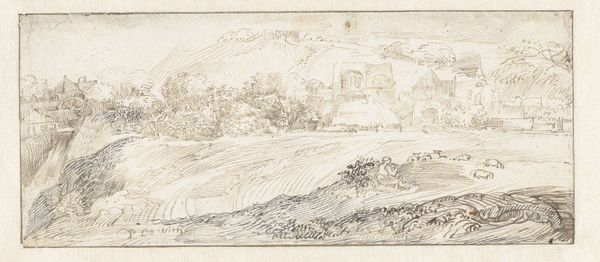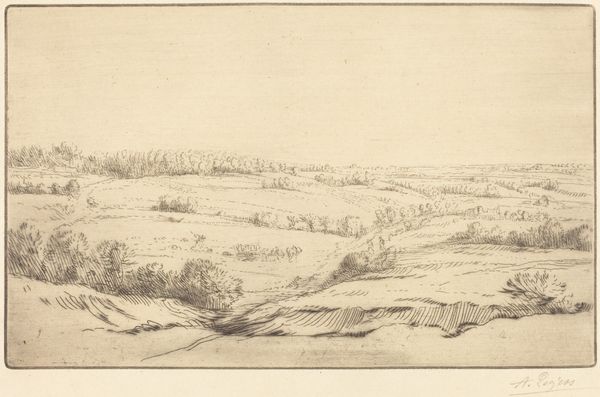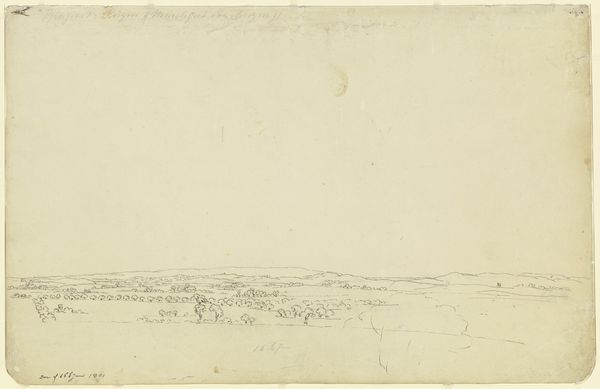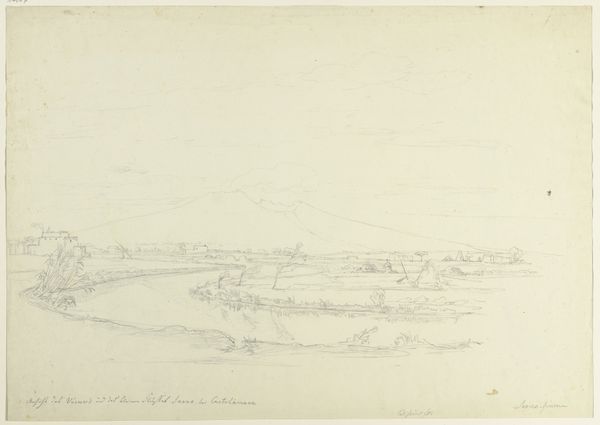
drawing, print, pencil
#
drawing
# print
#
landscape
#
pencil
#
realism
Dimensions: sheet: 4 1/2 x 14 1/4 in. (11.4 x 36.2 cm)
Copyright: Public Domain
Editor: This drawing, "View of the Appian Way," by August Leopold Venus, created in 1866, depicts a wide, seemingly empty landscape rendered in pencil. I'm immediately struck by how much empty space there is – a real contrast between the human constructions and the natural environment. What historical context should we consider when viewing this piece? Curator: It’s crucial to remember the cultural obsession with Italy during the 19th century. Viewing ancient ruins like the Appian Way was almost a pilgrimage for artists and intellectuals, especially from Northern Europe. This image captures that moment, when classical ideals met a rising tide of realism in art. Venus isn't just recording the landscape, he's documenting a specific moment in European intellectual history, a fascination with the grandeur of Rome and a way of seeing themselves in that history. Editor: So the Appian Way wasn't just a road, it was also a symbol? Curator: Absolutely. It represents the power of the Roman Empire and its lasting legacy. Think about the role of institutions – the art academies that stressed classical subjects, the grand tours sponsored by wealthy patrons. Venus, through his drawing and printmaking, is making this landscape, this cultural touchstone, available to a wider audience. Why do you think he chose such a muted palette, just the pencil? Editor: Maybe to emphasize the ruins' solemnity and the distance in time. It lends a certain gravitas. Is this drawing simply a picturesque scene, or something more political? Curator: I think it touches on both. While it might appear just picturesque, remember that landscape art, especially scenes of historically significant places, could subtly comment on contemporary issues. The decline of empires, the nature of progress, even national identity – it’s all lurking beneath the surface. What do you think that art galleries displayed or not during this time? Editor: Now that's something to reflect on—the curatorial choices then definitely shaped perceptions. Thank you. Curator: My pleasure. Understanding the cultural and political forces at play really transforms our view.
Comments
No comments
Be the first to comment and join the conversation on the ultimate creative platform.
